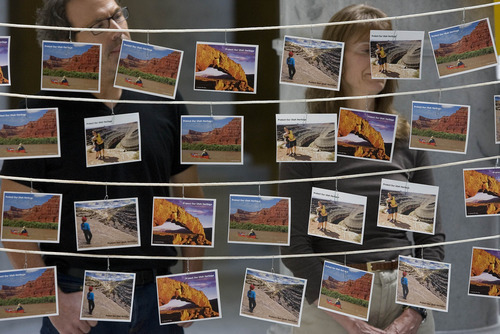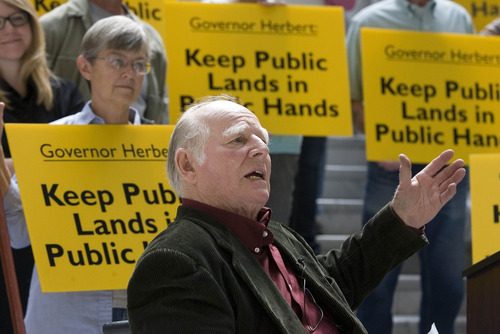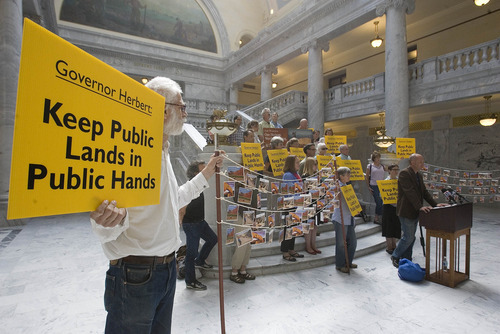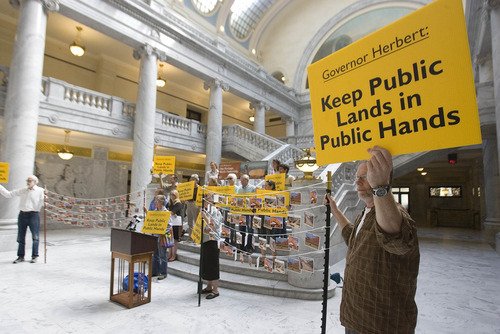This is an archived article that was published on sltrib.com in 2012, and information in the article may be outdated. It is provided only for personal research purposes and may not be reprinted.
Environmentalists and an outdoor retailer demanded Wednesday that Gov. Gary Herbert stop Utah's bid to claim federal lands, calling it harmful to Utah's image and tourism economy.
"Our public lands are a powerful calling card that will continue to attract industry and jobs," said Dwight Butler, owner of Wasatch Touring, an outdoor outfitter, during a rally at the Capitol. "In the interest of our children and future of our economy, Utah should be a leader in preserving and protecting these lands. … [We] would like to see Governor Herbert end his quixotic lawsuits and ultimatums against the federal government."
Afterward, the group delivered a petition and postcards from 5,400 Utahns, gathered by the Southern Utah Wilderness Alliance, urging the governor to end the land wars.
But the governor's spokeswoman, Ally Isom, said that the governor is looking to ensure the use of the public lands is "optimized," which it is not under the current management regime.
By controlling the land, Herbert and Republican lawmakers have argued, Utah could reap massive windfalls from oil, gas, coal and other natural resource development that could be used to fund public education.
"The basic notion that we could add the enormous cost and responsibility of managing these lands to our state budget is extremely questionable to begin with," said Dede Carpenter, who has worked in the hospitality industry. "Yet Governor Herbert is intent on spending millions of dollars of taxpayer dollars to pursue this effort, despite legal counsel that believes it will be unsuccessful."
Jack Nelson, a retired outdoors writer and hunting enthusiast, said he believes that Utah's public lands are at risk and Americans who recreate on them need to take action. And Laurel Legate, a public school teacher, said the legislation could cost Utah millions in legal fees that could be helping Utah's underfunded schools, instead.
But Isom said the government is looking for a balanced approach to conservation.
"I think the alarmists are getting ahead of themselves," said Isom. "This is actually setting the stage for a meaningful discussion with the federal government about how we manage lands. We need to take a step back and look at the bigger picture and look for a balanced approach."
SUWA spokesman Mathew Gross said that the only way Utah can afford to manage the millions of acres of land plus put billions more into schools, as sponsors promise, is if the state liquidates or develops huge swaths of the state's most prized areas.
"You're not going to recoup hundreds of millions of dollars of management costs by selling off unwanted parcels in the west desert. You're going to have to sell off the crown jewels," he said. "The economics dictate that."
The Utah legislation has been adopted as model legislation by the American Legislative Exchange Council and Utah lawmakers are urging other states to join the battle, although Arizona has been the only Legislature to pass the bill and it was vetoed by the governor.
The petitions also urged Herbert to abandon 22 lawsuits the state has filed challenging the ownership of trails and dirt roads that cross federal land. A Civil War-era mining law assured continued use of roads across federal land. The law was repealed in 1976, but has resulted in decades of litigation over what roads existed before that time.
Twitter: @RobertGehrke









